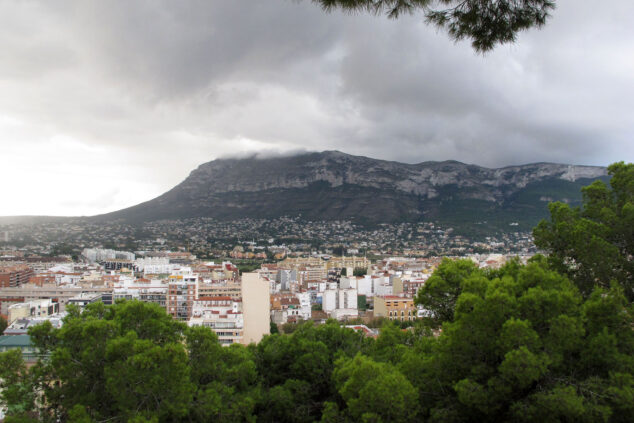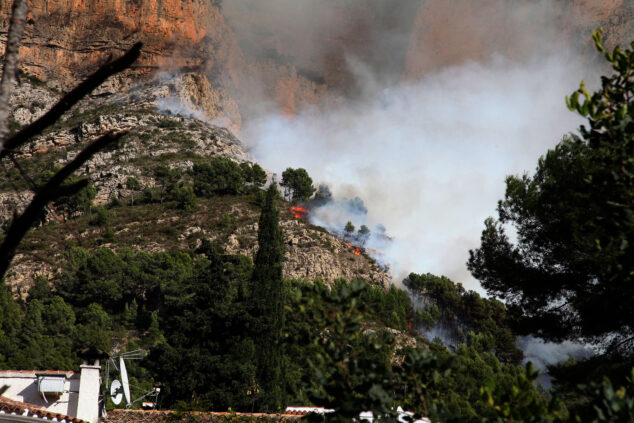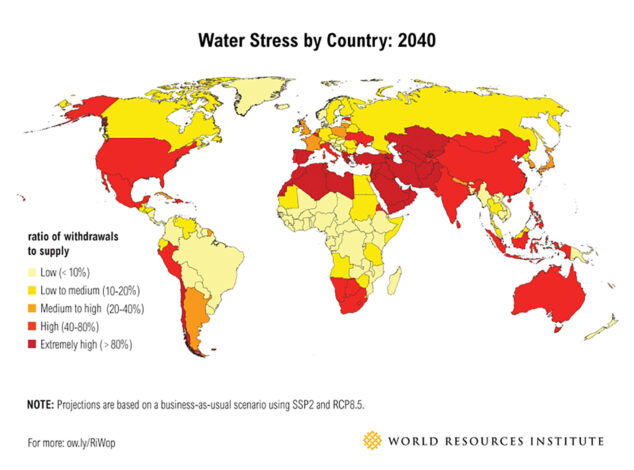El Natural Park Montgó has launched a new quarterly report on the situation of this mountain in the last year and it warns of the water stress suffered by the vegetation due to climate change, which may have negative consequences in the future.
As explained in the report, 2023 was "a very dry year, with a significant drought in the Montgó area." The main problem is that only around 50% of the average annual rainfall has fallen (in some seasons even less), which has had an impact on the flora of the area.
The low rainfall, together with the increase in heat, causes the aforementioned water stress to the vegetation. This is a phenomenon that includes - in addition to water scarcity - its quality, ecological flows and accessibility to it, according to the World Wide Fund for Nature (WWF). Specifically, it relates the amount of water that people (in this case, plants) use to the amount of this resource that a source produces.
Furthermore, with increasing temperatures, the vegetation's need for more water increases. The report highlights that the consequences of this are a dry appearance and even a change in their phenological cycles, that is, the periods of their life cycles, which present a series of changes in physiology, morphology, and behavior.
As it is a chain, the fact that the plants are dry increases the risk of suffering "a big fire" -as explained in the report-, taking into account that last summer was already one of the warmest since has a record, Dénia reaching 43,2ºC. Not only this, there may be a shortage of food for fauna that feeds on vegetation (in addition to water).
El Montgó, the mountain where it doesn't rain
The rainfall values collected this last year (according to AVAMET data) warn that in Dénia the amount was 286 mm, when the annual figures for the park have always been around 600-800 mm. In Xàbia There are also different meteorological stations that present similar results: of the three figures recorded, none is greater than 345 mm.
In the report they regret that, in addition to the little rain, it has fallen very irregularly over time. The month of October stands out among the rest since some stations have not collected even 10 mm, when, together with November, they are climatically the rainiest months.
"It must be clarified that droughts are normal in our climate, but for a decade an increase in the irregularity of rainfall has been observed, with small very wet periods followed by very dry months," they added from the park.
The unpromising trend for the future
A study by the World Resources Institute already warned in 2015 that in 2040 there will be 33 countries that suffer a very high level of water stress. Spain is ranked 32nd, with an indicator of 4.07, the maximum being 5.
Currently, other entities such as the WWF have also reported that water stress affects 20% of European territory (2023 data). "Spain will suffer more frequent and extreme climatic phenomena of floods and droughts with climate change," warn the organization, which asks public administrations to adopt prevention measures against drought and floods and a firm commitment to the recovery of space. river.










Drought gentlemen, it is called drought and lack of cleanliness
Aixo is fixing both months of construction